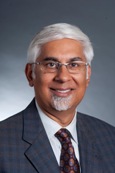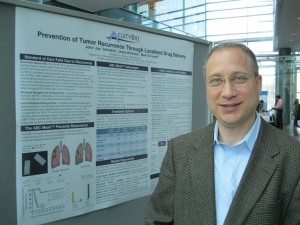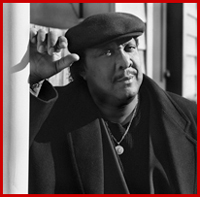 Natick, MA August 10, 2011
Natick, MA August 10, 2011
Metal Oxygen Separation Technologies, Inc. (MOxST, www.moxst.com, pronounced "most"), a leading company in clean metal production for clean energy, has won a $6 million award to scale up their MagGen1000™ primary magnesium production process from the U.S. Department of Energy Vehicle Technologies Program. MOxST CEO Steve Derezinski said, "This represents a very important milestone for the MOxST team and drives the next phase of growth for our company. The patented technologies commercialized with the development of the MagGen1000™ fundamentally change to way metals are produced." The award will support scale-up of the MagGen1000™, the first commercial scale system based on MOxST patented technology platform which produces high-purity magnesium metal directly from abundant domestically-produced magnesium oxide. Over the course of the three-year project, MOxST will roll out the MagGen1000™ equipment at commercial pilot plant scale (30-50 tons of magnesium per year.)
Adam Powell, MOxST CTO said, "This is an important validation of MOxST's clean technology platform for metals production, which will be very competitive in global markets as it drastically reduces both energy use and manufacturing emissions."
Fuel Efficiency Standards are Critical Driver
In July 2011, the Transportation Department and Environmental Protection Agency agreed with 13 auto manufacturers to adopt new Fuel Efficiency standards requiring a fleet average of 54.5 mpg by model year 2025. Key to achieving this goal is the "vehicle lightweighting" obtained by increased use of magnesium. Magnesium is the lowest-density engineering metal with better strength-to-weight and stiffness-to-weight characteristics, and simpler die-cast part manufacturing, than steel or aluminum.
Auto industry experts project that by 2020, a typical car could use 340 lbs of magnesium alloys to replace 630 lbs of steel and aluminum. This would reduce vehicle weight by 290 lbs and improve fuel economy by 1.5-2 miles per gallon, reducing petroleum imports by up to 1 million bbl/day.
MOxST's MagGen1000™ platform uses 85% less energy than the coal energy hungry "pigeon process" used in China to produce 80% of the world's magnesium. MagGen1000™ uses 50% less energy than the chloride electrolysis processes used in the west. With greatly reduced electricity requirements, MagGen1000™ partnered with renewable electricity produces Magnesium with near zero greenhouse gas (GHG) emissions.
About the U.S. Department of Energy Vehicle Technologies Program
"The Vehicle Technologies Program is developing more energy efficient and environmentally friendly highway transportation technologies that will enable America to use less petroleum. The long-term aim is to develop "leap frog" technologies that will provide Americans with greater freedom of mobility and energy security, while lowering costs and reducing impacts on the environment."
About Metal Oxygen Separation Technologies, Inc.
MOxST was founded by CEO Steve Derezinski and CTO Adam Powell in 2008 to bring SOM Electrolysis technology to industrial scale. SOM Electrolysis is a patented breakthrough technology for making metals from their oxide ores with low capital, raw material and energy costs and zero chlorine or carbon emissions. The company is privately held and backed by angel and private equity investors.
http://www.moxst.com
Press Contact
press@moxst.com
781-898-3430
 Dear Reader,
Dear Reader, Founded in 2008, AcuityBio started as a collaborative effort by Boston University’s Dr. Mark Grinstaff (Professor of Chemistry) and Brigham and Women’s Hospital Dr. Yolanda Colson (Cardiothoracic oncology Surgeon and Scientist) to improve the current standard of care for lung cancer patients and address the major clinical problem of tumor recurrence. Their goal was to create a unique and simple-to-use drug-loaded implant that could reduce cancer recurrence by locally delivering therapeutic levels of drug to residual tumor cells for extended periods of time. Utilizing Colson’s experience in surgical oncology and Grinstaff’s knowledge in polymer chemistry and engineering, the team developed the ABC MeshTM. Together with Jesse Wolinsky, a post-doctoral researcher in Grinstaff’s lab, the team published several papers on the technology in March of 2010. A few months later, First Founders Ltd. introduced Dr. Jay Schwartz to the inventor team to act as the new company’s CEO. AcuityBio’s biocompatible and biodegradable ABC MeshTM will be stapled in at the edge of the resection during normal tumor removal surgery and deliver chemotherapeutic drug locally to the tissue over 50 days and then be absorbed by the body. By localizing the administration of chemotherapeutic agent, the optimal dose of drug can be delivered over a time span where it will be most effective and result in little to no side effects. The ABC MeshTM technology has come a long way from its inception and will be headed to the clinic within two years.
Founded in 2008, AcuityBio started as a collaborative effort by Boston University’s Dr. Mark Grinstaff (Professor of Chemistry) and Brigham and Women’s Hospital Dr. Yolanda Colson (Cardiothoracic oncology Surgeon and Scientist) to improve the current standard of care for lung cancer patients and address the major clinical problem of tumor recurrence. Their goal was to create a unique and simple-to-use drug-loaded implant that could reduce cancer recurrence by locally delivering therapeutic levels of drug to residual tumor cells for extended periods of time. Utilizing Colson’s experience in surgical oncology and Grinstaff’s knowledge in polymer chemistry and engineering, the team developed the ABC MeshTM. Together with Jesse Wolinsky, a post-doctoral researcher in Grinstaff’s lab, the team published several papers on the technology in March of 2010. A few months later, First Founders Ltd. introduced Dr. Jay Schwartz to the inventor team to act as the new company’s CEO. AcuityBio’s biocompatible and biodegradable ABC MeshTM will be stapled in at the edge of the resection during normal tumor removal surgery and deliver chemotherapeutic drug locally to the tissue over 50 days and then be absorbed by the body. By localizing the administration of chemotherapeutic agent, the optimal dose of drug can be delivered over a time span where it will be most effective and result in little to no side effects. The ABC MeshTM technology has come a long way from its inception and will be headed to the clinic within two years. Natick, MA August 10, 2011
Natick, MA August 10, 2011

